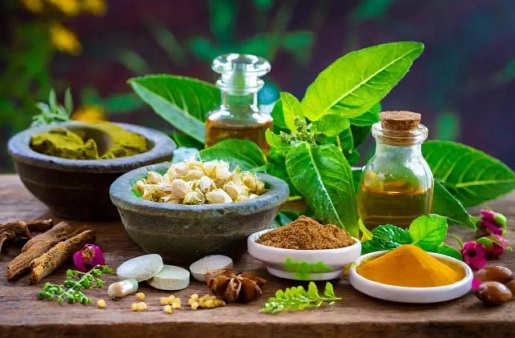Nikhil Prasad Fact checked by:Thailand Medical News Team Aug 29, 2024 7 months, 4 weeks, 6 hours, 37 minutes ago
Mpox News: Embracing Traditional Medicine Amidst a Health Crisis
As India faces the challenge of containing the spread of monkeypox, a viral infection that has recently made its presence known in the country, attention is turning to traditional herbal treatments. These age-old remedies, rooted in India's rich Ayurvedic tradition, are being explored for their potential to manage and mitigate the symptoms of monkeypox. Researchers from Mangalore University and Karnatak Science College are among the leading institutions studying the antiviral properties of various plants, highlighting the relevance of traditional medicine in modern healthcare. This
Mpox News report covers their research and some of the herbs used in tradtional herbal medicine in India that are claimed to be able to help in Mpox infections.
 Traditional herbal treatments for Mpox in India
The Role of Herbal Medicine in Combating Viral Infections
Traditional herbal treatments for Mpox in India
The Role of Herbal Medicine in Combating Viral Infections
India's vast biodiversity and centuries-old tradition of herbal medicine offer a unique resource for developing treatments against viral diseases. Ayurvedic medicine, in particular, has long utilized plants and their extracts to treat a wide range of ailments, including those caused by viruses. Among the plants being investigated for their potential to treat monkeypox are Sarracenia purpurea (Indian pitcher plant), turmeric (Curcuma longa), and neem (Azadirachta indica).
Key Herbal Remedies for Monkeypox
-Indian Pitcher Plant (Sarracenia purpurea): Traditionally used for its antiviral properties, this plant is being researched for its potential role in managing monkeypox. The Indian variant, Nepenthes khasiana, found prominently in the state of Meghalaya, has been noted for its medicinal properties.
-Turmeric (Curcuma longa): A staple in Indian households, turmeric is renowned for its anti-inflammatory and antiviral effects. Curcumin, the active compound in turmeric, has been shown to inhibit viral replication, making it a potential candidate for supporting the treatment of monkeypox.
-Neem (Azadirachta indica): Known for its broad-spectrum antimicrobial properties, neem has been traditionally used to treat a variety of skin conditions and infections. Its potential to combat viral infections, including monkeypox, is now being explored in greater depth.
https://www.thailandmedical.news/news/azadirachta-indica-neem-should-be-studied-and-explored-as-a-potential-adjuvant-in-mpox-monkeypox-treatments
-Resveratrol: Found in grapes, peanuts, and blueberries, resveratrol is a natural compound with strong antiviral properties. Its ability to inhibit virus replication makes it a promising herbal remedy for monkeypox.
-Triphala: This well-known Ayurvedic formulation consists of three frui
ts -Emblica officinalis (Indian gooseberry), Terminalia bellirica (Bibhitaki), and Terminalia chebula (Haritaki). Triphala is valued for its immune-boosting and antiviral properties, which could be beneficial in managing monkeypox symptoms.
Integrating Traditional Remedies into Modern Healthcare
The potential of these herbal treatments to manage monkeypox lies in their ability to support the body's immune system and alleviate symptoms. While modern medicine focuses on vaccines and antiviral drugs, traditional remedies offer complementary approaches that can be integrated into a broader treatment plan. Researchers emphasize the importance of scientifically validating these treatments through clinical trials to ensure their safety and efficacy.
The resurgence of interest in herbal medicine is not just about returning to roots; it is about combining ancient wisdom with modern science. In the context of the monkeypox outbreak, these treatments could provide additional tools for healthcare providers, particularly in regions where access to conventional medicine is limited.
Conclusion: A Harmonious Blend of Tradition and Innovation
As India navigates the challenges posed by monkeypox, the exploration of traditional herbal treatments offers a promising avenue for enhancing care. By integrating these remedies with modern medical practices, India can leverage its rich botanical heritage to combat emerging health threats.
The study findings were published in the peer-reviewed journal: International Journal of Innovation Scientific Research and Review.
https://www.academia.edu/93489202/Human_Monkeypox_detected_first_time_in_India_Role_of_Traditional_Herbal_Treatment
For the latest
Mpox News, keep on logging to Thailand Medical News.
Read Also:
https://www.thailandmedical.news/news/while-who-admits-mpox-can-be-spread-by-droplets,-past-studies-show-it-can-be-airborne
https://www.thailandmedical.news/news/mpox-viruses-are-mutating-rapidly-and-africa-is-not-equipped-to-cope-with-the-situation
